10 Ways to Fight Fatigue on a Vegan Diet
If you’re on a vegan or plant-based diet and are always feeling tired or run down, then you need to check out these 10 ways to fight fatigue on a vegan diet. I’m sharing these tips along with my personal story of fatigue on a vegan diet.
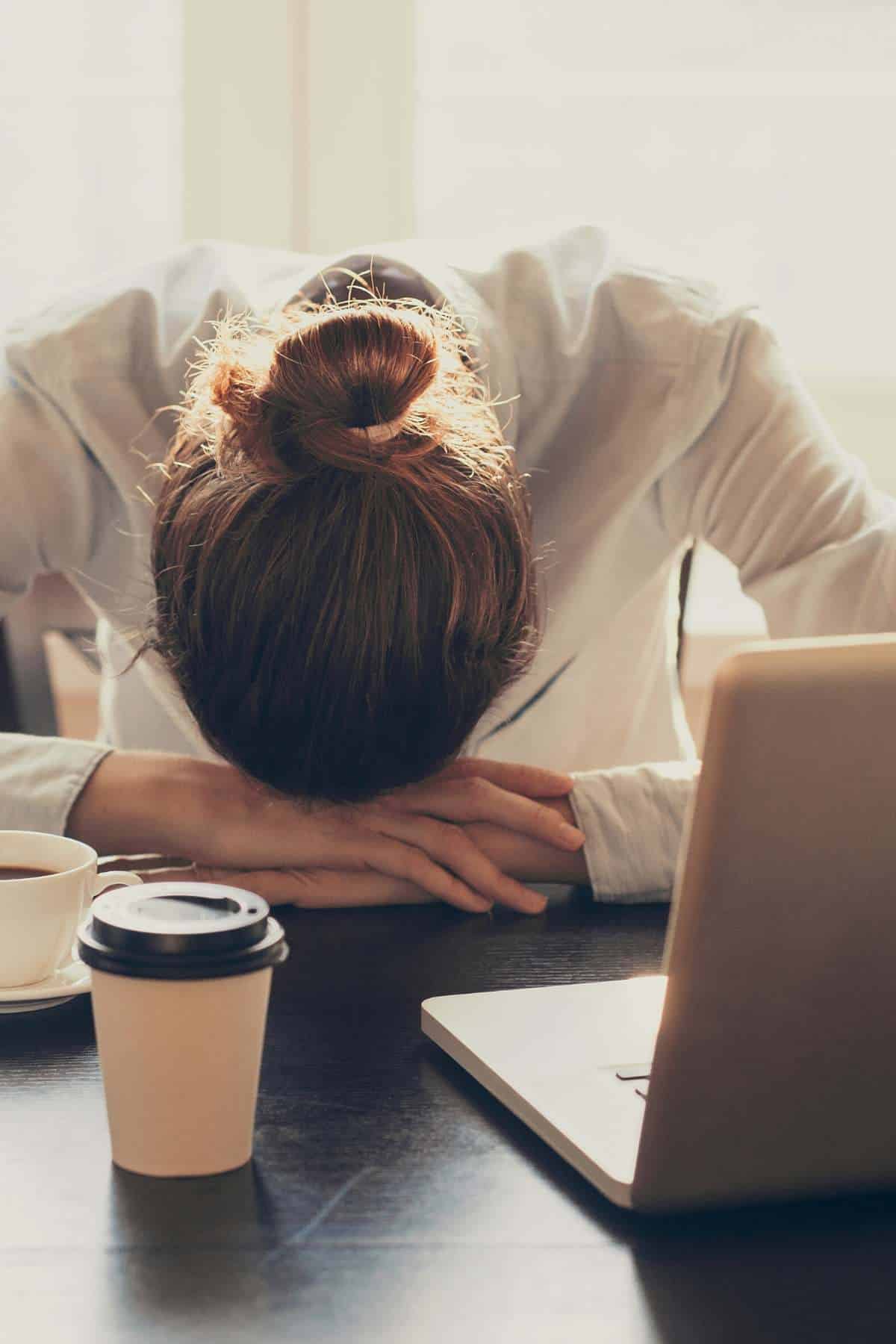
10 Ways to Fight Fatigue
Whether you’re new to a vegan or plant-based diet, or you’ve been doing it for awhile, you may start to experience fatigue, headaches, tiredness, or mood changes. Some of the common questions and concerns include:
- I went vegan or vegetarian and I’m feeling weak or tired.
- I went vegan and I’m feeling depressed.
- My adrenal fatigue got worse on a vegan or plant-based diet.
- I’m eating a vegan diet and getting dizzy spells.
If any of these issues related to you, then read on! You’ll probably find at least one tip or more that can help resolve your fatigue on a vegan or plant-based diet.
Plus, be sure to read the section at the end of this post to help determine if dietary changes may be necessary to help resolve your tiredness.
1. Get good quality sleep
Believe it or not, but the most common reason for fatigue is poor sleep, or not getting enough sleep.
I went through a period of several months where I would go to bed at a normal time, but wake up only 4-5 hours lately completely awake. So, rather than toss and turn for hours, I would get up but then be exhausted later in the day.
Whether you have insomnia like I had, or you have sleep apnea, hormone imbalances like estrogen dominance, or something else that is causing sleep disruptions, it is important to address this issue.
In regards to a plant-based diet and disrupted sleep, there could be several issues at play.
For instance, are you eating enough, especially later in the day? If you are waking up hungry, then you need to increase your calories overall. You may also need to adjust your macronutrients to increase satiety.
Secondly, have you developed any nutrient deficiencies on a vegan diet? Issues like low iron can lead to restless leg syndrome which can definitely make it harder to sleep. In this case, you’ll need to work with your healthcare provider to increase sources of iron (or maybe even take supplements) to increase your iron.
You may need to consult your healthcare provider to help rule out any other conditions that might be affecting your sleep. Once you get your sleep under control, you will likely feel less fatigue.
2. See professionals and get appropriate tests to identify medical problems
Don’t wait too long to try and figure out if your fatigue is related to health condition. Fatigue can often be related to an autoimmune disease such as Hashimoto’s Thyroiditis.
Women’s concerns about fatigue can often be dismissed by doctors, so it’s important to be your own advocate and ask that your thyroid levels be tested.
if not well-planned, vegan diets can lead to deficiencies in certain nutrients such as vitamin B12, omega-3 fatty acids, iron, and zinc, which are important for immune system function.
A deficiency in these nutrients could potentially contribute to immune dysregulation.
If your thyroid is healthy and you can rule out thyroid disease as the cause of your fatigue, then it’s also worth having your ferritin levels tested to make sure you aren’t anemic.
Learn more about ferritin testing and how you can order your own lab tests.
3. Take appropriate supplements for fatigue
Your doctor or healthcare provider can likely suggest some supplements to help with your tiredness.
Whether you are in need of more protein, more iron, or something else, it’s important to get some expert input about your individual situation.
And, be sure to check out this article with natural ways to increase energy which includes a whole list of supplements that can help.
You may also want to read my articles on the best supplements for women over 30 and the best supplements for women over 50.
4. Use a plant-based protein powder supplement and eat more protein rich plant foods
While many vegan diet advocates say that you can get all the protein you need from whole food plant sources, there are some women who need more protein.
This was the case for me when I was on a vegan diet. While I ultimately stopped being vegan, I usually felt less tired when I added a plant-based protein powder to my morning smoothie.
There are some great plant-based protein powders on the market now, and you can choose from a variety of ingredients including rice protein, pea protein, hemp, soy, and more. Just try a few different brands and see which one works best for you.
Check out why list of the best clean protein powders.
5. Practice stress management
Since there are so many stressors in the world right now, it’s that much more important to learn to manage that stress. If you don’t, then you will likely feel run down and not as energetic as you normally feel.
Stress management can include everything from meditation, sitting quietly, spending time with friends, being outside in nature, or journaling. Or, if you are truly suffering, you can also reach out to find a therapist who can help you develop coping skills.
6. Get appropriate exercise
While getting daily movement is important, you might need to make sure you aren’t working out too hard. Fatigue is an important indicator that you might be over-training or under-training.
Some experts say that most adults need about 30 minutes of exercise a day.
7. Drink green tea
While hyping yourself up on caffeine isn’t the best way to combat fatigue, a glass of green tea can help. In addition to being high in antioxidants, green tea also contains l-theanine. L-theanine can help improve focus and mood.
You can buy green tea loose or in bags, or you can also try match (learn about the health benefits of matcha). Don’t miss my recipe for Coconut Matcha Latte.
8. Eat a variety of plant-based foods with minimal processing
When you’re eating vegan, it can be tempting to turn to vegan junk foods. Fake meats are not healthy foods, and neither are sugar-filled vegan desserts. Learn more about the risks of plant-based meats.
Instead of eating processed foods with refined oils and sugars, it’s better to choose whole foods such as fruits, vegetables, legumes, grains (if they work for you), nuts and seeds.
If you are having a hard time figuring out how to eat on a vegan diet, then you might benefit from consulting a dietitian or nutritionist who can help you create a meal plan that is tailored to your individual needs.
You may also want to read this article about myths of a plant-based diet.
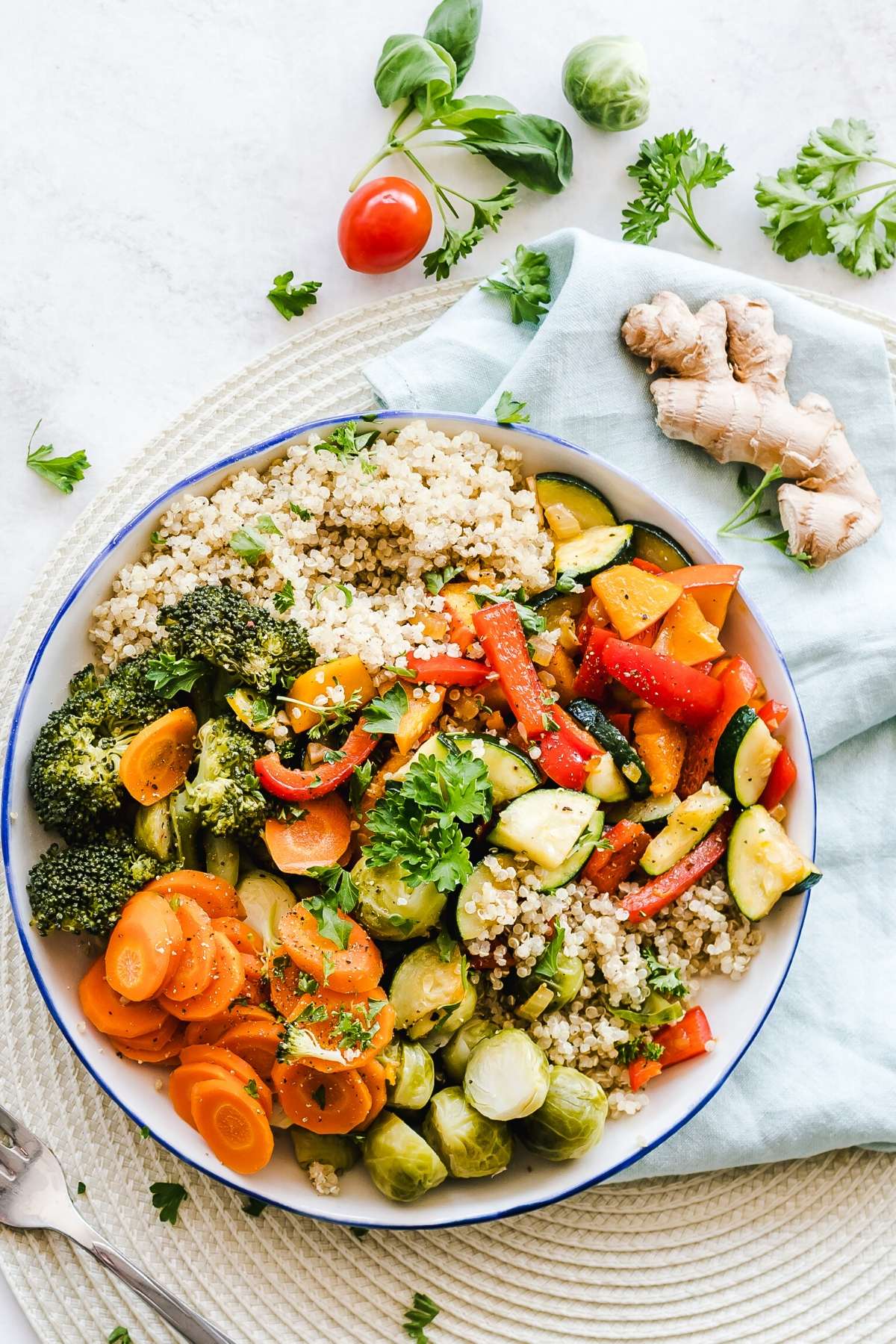
9. Soak and sprout foods
If you find that you feel really tired or bloated after eating a plant-based meal, then you might try soaking and sprouting your foods. Beans, nuts, seeds, and many grains can all be soaked before being cooked.
While it does take extra time to soak and sprout your foods, it can make all the difference in how your body digests those foods.
10. Consume minimal refined sugar
While eating sugar can give you more energy in the short term, you’re probably familiar with the energy crash that can occur once the sugar high wears off. It’s important that you wean yourself off too much refined sugars.
it can be hard to get over a sugar addiction, but you can move toward natural sugars from fruits and dates to help.
See my related article with the benefits of going sugar-free.
Vegan Fatigue FAQs
It is definitely possible that the cause of your fatigue is that a vegan diet is not working for you. There are some health risks that come with a vegan diet, and not everyone knows about these risks. Consider the differences between vegan and vegetarians and think about expanding your dietary choices.
If you determine that a vegan or plant-based diet isn’t for you, then you might need to consider re-introducing meat back into your diet.
It’s impossible to list all the potential causes of fatigue, so it’s probably a good idea to consult a healthcare provider to rule out any major nutrient deficiencies or diseases that may be causing you to feel fatigued.
You can also check out this post with reasons and tips to help if you’re feeling tired all the time.
More Health Articles You Might Like
Conclusions
If you are on a vegan diet or a plant-based diet and experiencing fatigue, there are several ways to try and feel more energetic. If your tiredness does not improve, then it may be time to consider seeing a dietitian or your doctor to rule out other conditions.
Don’t forget to join my newsletter list to get exclusive clean eating recipes and tips. The newsletter is 100% free with no spam; unsubscribe anytime.
About the Author: Carrie Forrest has a master’s degree in public health with a specialty in nutrition. She is a top wellness and food blogger with nearly 10 million annual visitors to her site. Carrie has an incredible story of recovery from chronic illness and is passionate about helping other women transform their health. Send Carrie a message through her contact form.
Note: this post is for informational purposes only and is not intended as medical advice. Please consult your healthcare provider for recommendations related to your individual situation.


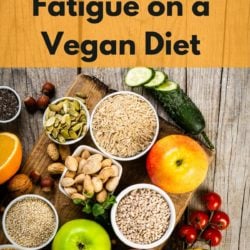

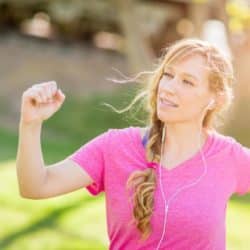
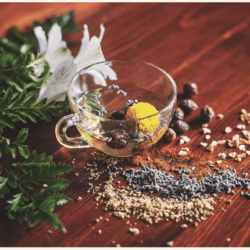
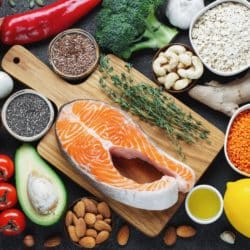



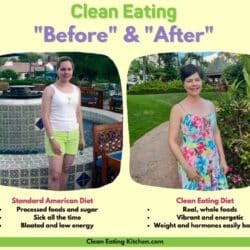

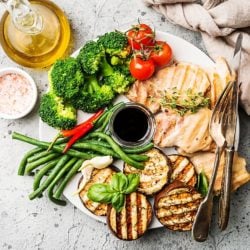


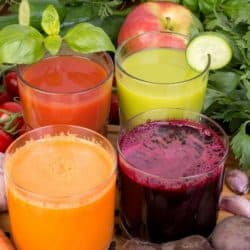

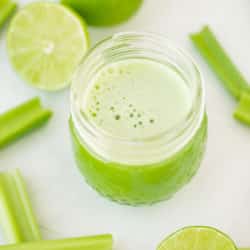



The most important key nutrient that is a common cause of the lack of energy in vegans is the vitamin B12. If you are tired on the vegan diet and do not take vitamin B12 regularly, then it is the most likely cause of your issues, as over 50 % vegans who do not supplement vitamin B12 are in fact deficient and one of the key symptoms is a fatigue/tiredness, as the deficiency causes anaemia and neurological symptoms. Apart from the B12, insufficient energy intake is a thing to consider.
I’m not sure if you still monitor this thread but I’ve recently went vegan as I have just been diagnosed with a recurrent breast cancer (the one that feeds off hormones!) and I felt vegan might be the way to go. I’m feeling really fatigued though and I do wonder if there’s any food resources for those who have had breast cancer diagnosis and who are in need of a healthier lifestyle to help prevent their illness.
Hi Gemma, I’m so sorry to hear about your diagnosis. Does your cancer care center have a dietitian or nutritionist on staff? They are usually trained in oncology nutrition and would be a great resource.
No there’s not but they did suggest that my doctors surgery could put me in touch with a nutritionist so I’m going to give them a call today and see what they say.
They have offered me a spot on a trial but it’s general diet and healthy eating, and wellness, not specific for my cancer. I’d like to locate someone that has specific knowledge.
I think we are the same person… I know you posted this awhile ago but I just happened to stumble upon it. I’m working on my masters thesis at the moment and hoping that my issues will resolve once I’ve graduated… My PCOS was bad and since I’ve been vegan it hasn’t acted up at all. However, my skin still breaks out on my back, neck and face, almost cystic-like under my ears. I also have this skin rash and I’m pretty sure it’s lichen planus. I’ve recently begun sprouting my beans and thoroughly soaking my grains, but I’ve been so fatigued lately.. I’m doing my best to avoid gluten and sugar, however, I’ve only been doing all these things for about two weeks. Maybe if I keep all this up it will get better, and focus on stress management.. How long did it take for you to notice a good change?
Hi Malorie, I’m so sorry to hear that you’re having this issue. I ended up moving away from a strict plant-based diet, along with doing extensive testing with a dietitian and functional medicine doctor to determine which supplements I needed to feel better. If you want to talk directly, feel free to e-mail me: carrieATcarrieonlivingDOTcom, and, although I can’t advise you since I’m not a medical professional, I’m certainly willing to share more of my experience. Hugs!!!
Carrie, I have been reading your post and I have had problems also. My best friend is a 100% no oil vegan and has tried to convince me that I’m killing myself eating animal products. However, I have tried on two different occasions to be vegan (one year apart). The first round was in 2014, I ended up being so fatigued at the 4 month mark that I couldn’t even get up off the couch; I tried again in 2015 and supplemented with B12 this time but the same thing happened. I really want this to work, but maybe it doesn’t agree with my biology. I would love to find out more about your journey and what you discovered about your own biology; and what food plan you have currently adopted. I really like the idea of being a vegan for lots of different reasons, but haven’t been able to make it work. Thank you for sharing your experiences.
Thanks for reaching out and I hope to hear from you. Sending you much love and compassion on your journey; I know how hard this can be.
Hi Malorie,
I have pcos as well and have been suffering from fatigue, brain fog, and blurry vision as well. It has really just ruled my life and caused me to just feel like I’m in a fog 24/7. It also triggers my depression which just sucks. Especially not being able to relate to anyone else puts me down as well…sometimes I feel when I talk to people about it they just think I’m tired because I look fine but really I’m feeling terrible. I also have hashimoto’s but my thyroid levels are normal, so my endo thinks my symptoms are coming from my pcos, though the only treatment she has given me is birth control….I’m trying the gluten free/dairy free and now limited sugar diet as well and haven’t noticed a difference yet, but I heard it takes about a month so let’s have some hope!! 🙂 I was also vegetarian for a couple of years and started eating eggs and fish again for protein but haven’t noticed a difference from that as well. I keep thinking about maybe introducing chicken or turkey back into my diet, but I really would rather not. hopefully we both feel better soon 🙂
Hi Angela, check out the book “The Period Repair Manual” by Dr. Lara Briden for excellent information related to PCOS. I use that book for dietary and supplement recommendations and it helps keep my PCOS in check.
I’ve been vegan for only a month now and I hardly eat any of the ‘alternative’ products but I have been so fatigued from day 1! I believe in so many principles of the vegan diet and I really don’t want to give it up but the fatigue is a killer as like yourself I’m a very active person and I love the feeling of eating healthy. I see so many people talk about how much energy they received upon adopting this lifestyle but for me it has been the opposite and im starting to think maybe there is something deeper going on. Do you have any advice on how to stop this fatigue or will the ‘detoxing’ just take longer for some?
Thank you!
Hi Alison, I’m sorry it took me a few days to respond to your comment. I’m also really sorry to hear about the troubles you’re running into. I don’t know if you’ve kept up with my more recent articles, but I did end up moving away from a fully vegan diet about a year ago. Most of my fatigue issues have been resolved. Let me know if I can pass along some resources/information, I’m also working on a blog post about what specific mistakes I believe I made on a vegan diet. Sending you much love for healing. P.S. I should also mention the fact that I’m not a health professional, so it’s really best if you consult a clinician about this specific issue.